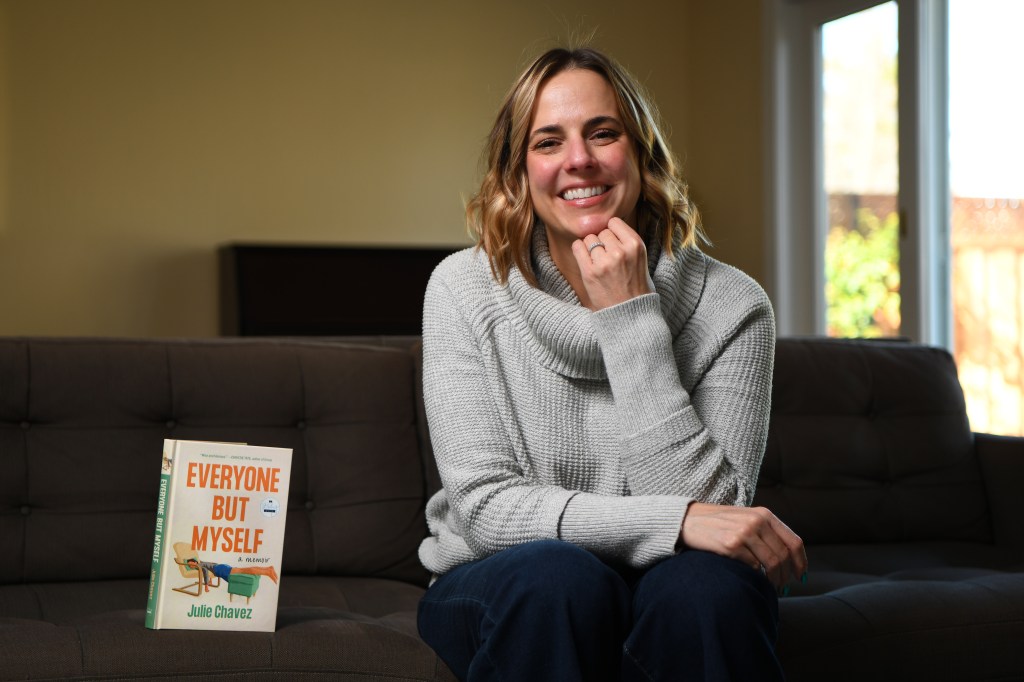Julie Chavez, an author from Pleasanton, photographed at her home in Pleasanton, California, on Monday, January 8, 2024. Ms. Chavez, an elementary school librarian in Pleasanton and mother of two boys, just published her memoir about dealing with panic attacks. . This book will be released on January 9th. (Jose Carlos Fajardo/Bay Area News Group)
Julie Chavez recalls the night in April 2018 when things got chaotic. A Pleasanton elementary school librarian calls it “the night you couldn't turn off the lights.”

